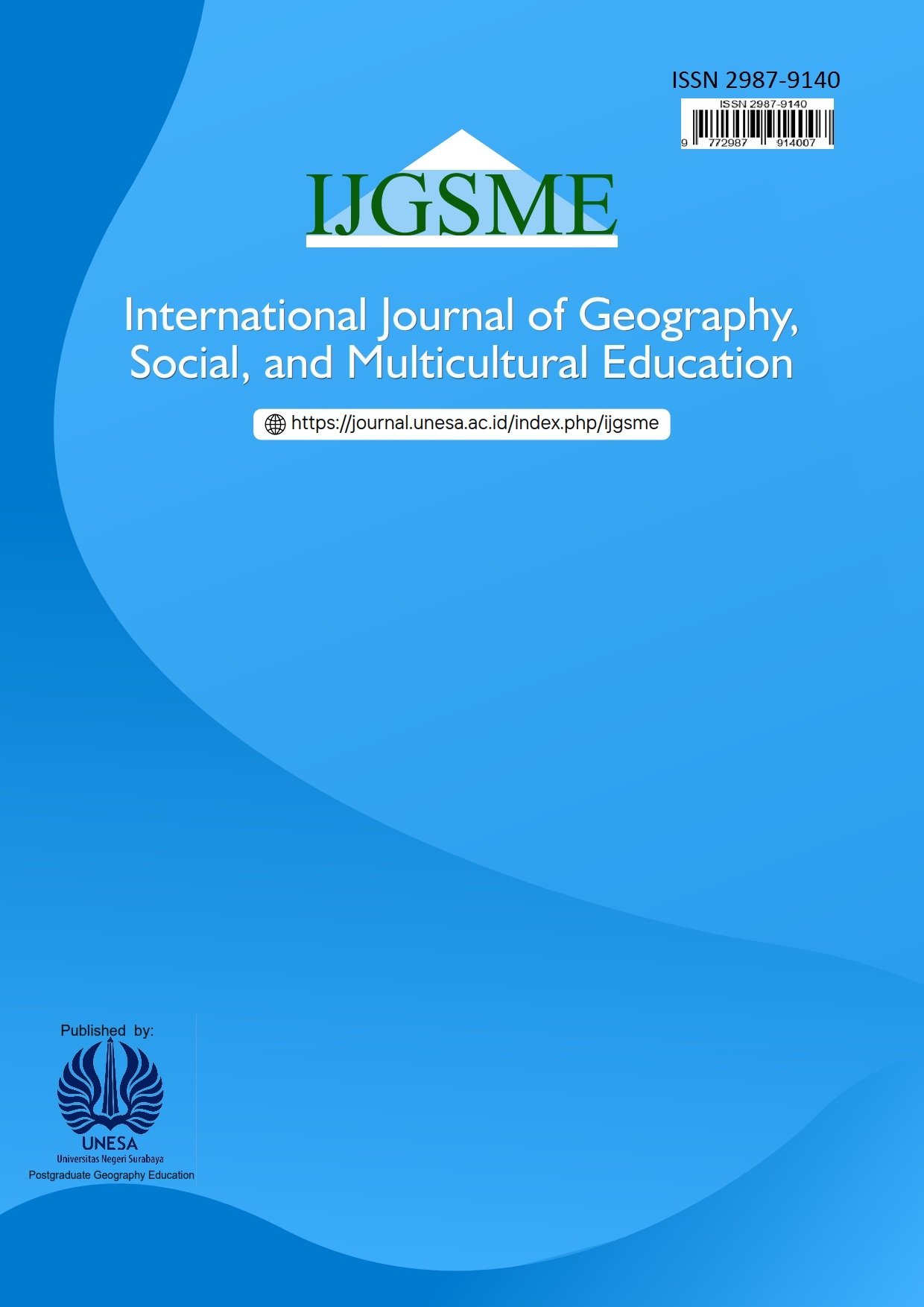The Effect of Prior Knowledge on Field Work Learning on Interests and Social Studies Learning Outcomes of Junior High School Students
DOI:
https://doi.org/10.26740/ijgsme.v1n2.p31-39Keywords:
Learning, Field Work, Interest, ResultAbstract
This research is aimed at knowing the results of the application of field work learning to the interests and social studies learning outcomes in economic activity material. The use of the Nonequivalent Control Group Design design with purposive sampling technique makes class VII E as the experimental class and class VII B as the control class of the entire population of students from class VII A to class VII H. Treatment in the experimental class is in the form of field work learning and the control class in the form of conventional learning obtained research findings indicating that the experimental class gained an increased interest of 40.2% and the learning outcomes of the experimental class experienced an increase of 25.94%. The results of the Mancova test with the initial covariate of students' learning abilities showed a value of F = 95.810 with sig = 0.000, namely the value of sig = 0.000 <0.005. These results are the results of the prerequisite test using the normality test, homogeneity test and hypothesis testing in the form of the mancova test. From the results obtained, it can be assumed that there is an influence between field work learning and the interests and social studies learning outcomes of junior high school students on economic activity material.
Downloads
Published
How to Cite
Issue
Section
License
Copyright (c) 2023 Shofroul Laili, Sukma Perdana Prasetya , Nasution, Kusnul Khotimah

This work is licensed under a Creative Commons Attribution-ShareAlike 4.0 International License.
 Abstract views: 1084
,
Abstract views: 1084
, PDF Downloads: 36
PDF Downloads: 36








